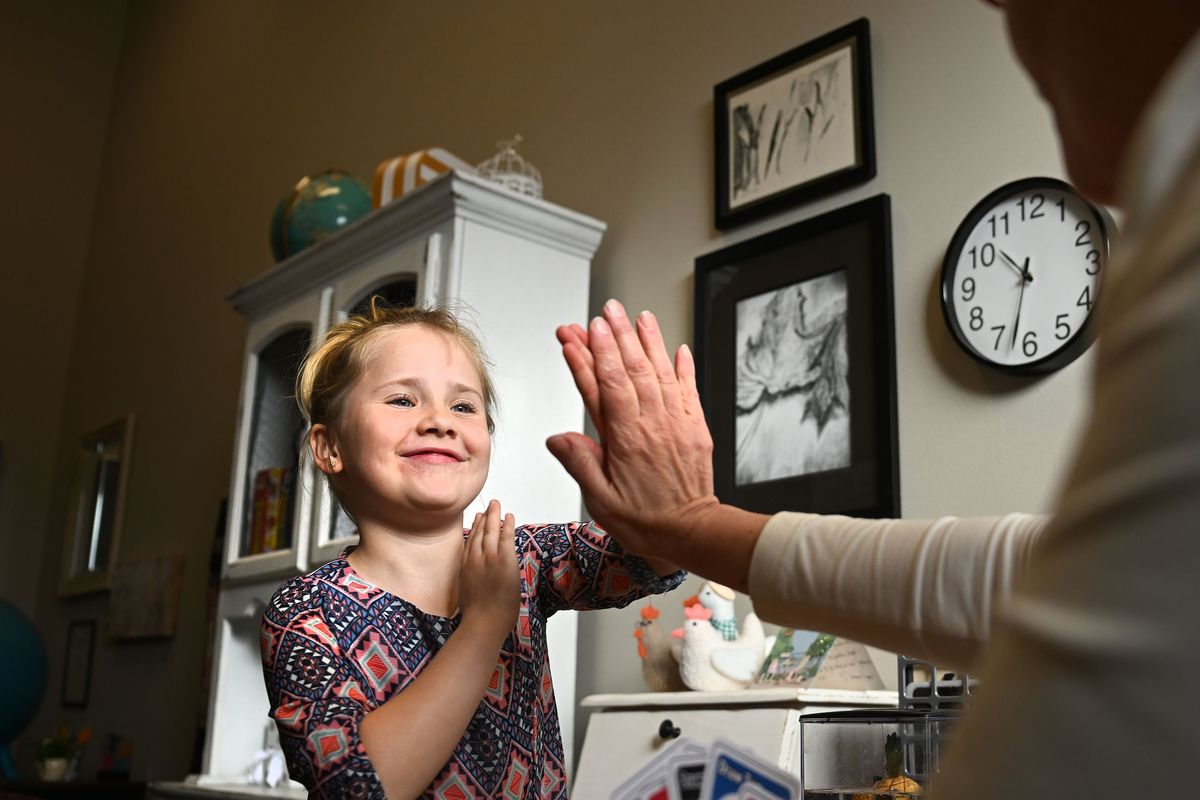Local nonprofit plans teacher workshops to hear needs for helping students with dyslexia

A Spokane nonprofit wants to hear from K-12 teachers about what resources they need in classrooms for students with dyslexia, while also offering them a chance to network.
The INW Dyslexia Alliance has started a program called Champions for Dyslexia to foster networks and support for educators, and by fall, it will form parent-caregiver groups.
Two free workshops are scheduled in April for educators to give input or ask questions about the learning disorder.
A North Idaho educators’ workshop is scheduled 6 p.m. Thursday in Coeur d’Alene at the Salvation Army Kroc Center, 1765 W. Golf Course Road.
The Spokane-area educators’ session is set at 4:30 p.m. April 15 at Shadle Park Library, 2111 W. Wellesley Ave.
“We want to get input from current educators about what they want to learn more about with dyslexia, so we can better plan our next (school) year of workshops,” said Heather Miciak, a Spokane reading instructional coach for elementary-aged students.
Teachers aren’t required to register to attend the workshops. They can get more information or receive workshop presentation notes by signing up for a free newsletter on the INW Dyslexia Alliance website.
Miciak is among about five educators who are leading a Champions for Dyslexia group in Eastern Washington.
The group’s leaders also want to hear from educators who have found successful dyslexia teaching methods or know of experts who can share understanding about the disorder at future workshops, she said.
“Our goal for the Champions for Dyslexia is to make sure we’re giving educators what they need, so come and let us know what you want to know more about,” Miciak said.
She said the network is needed because there isn’t one like it in the area.
“Dyslexia is a true diagnosis, and students have it; we know that adults have it. But there has not been good professional development or networking for teachers, so we’ve all been kind of isolated in our own classrooms doing the best we can with what we know.
“We hope to hold workshops every other month beginning September or October of next year. Our goal is to use this as our jump-off, and then come together and start planning to map things out, such as when is a good time to do training, or who do we have to lead those workshops.”
Examples of input or questions at workshops can be around classroom strategies, how to help students in meeting literacy requirements and ways to support students through assessments, Miciak added.
“This really is the kickoff. I do feel like educators live in an isolated world when it comes to dyslexia, and they don’t know there is something out there for them.”
The sessions for North Idaho and Eastern Washington are separate because the states have different literacy education requirements.
Dyslexia is a learning disorder that affects reading because of problems identifying speech sounds and learning how they relate to letters and words, according to the Mayo Clinic. Most children with dyslexia can succeed with tutoring or a specialized education program, the clinic said.
Lisa Repp, INW Dyslexia Alliance executive director, co-founded the nonprofit in 2022. It also offers low-cost dyslexia evaluations and other services.
The alliance’s website says that about one in five students has dyslexia.
“We’ve only launched the educator groups so far, but we do have plans in the fall to launch the caregiver groups, as well,” said Repp, whose children have dyslexia.
“We wanted to create an educators group and a caregivers group because it’s really come to light the importance of learning more about dyslexia in the realm we live in. While educators want to learn more about dyslexia, that same ownership and importance is needed for parents and caregivers, because we have to advocate for our kids.”
Repp said a goal with the first educators’ workshops is to find focused themes for teacher sessions in the next school year. Other examples could be sessions on assistive technology or strategies for dyslexic high school students.
“We really want to understand what is the main interest of our groups currently, and where can we bring in experts to speak to different themes?” Repp said.
“My hope is to expand this eventually to support staff, so speech-language pathologists, psychologists or counselors. All of these professional groups are touchpoints for our dyslexia students, and how do we help these kids be successful?”
About 25 people are signed up for a newsletter for an Eastern Washington Champions for Dyslexia group, but that isn’t required to attend networking events, she said.
“This is to help build community,” Repp said. “So much of teachers’ network is related to their district or own particular school, but these are regionwide groups.
“We are talking about dyslexia in general and kids’ literacy struggles. That overlaps any district or state line.”